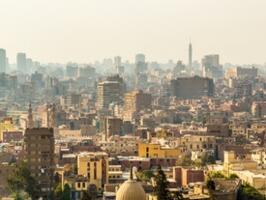Food Riots: Is Bernanke Partially to Blame?
A Commentary By Lawrence Kudlow
As we know, massive popular unrest has broken out against autocratic governments in North Africa and the Arab world. Egypt is the biggest story. But to varying degrees, the people have taken to the streets in Algeria, Jordan, Libya, Morocco, and Yemen.
But in addition to the apparent revolt against repressive governments, all the experts say the other main cause of unrest is record food prices. For example, former Bush advisor Dan Senor notes that Egypt is the world’s largest wheat importer. Because of skyrocketing prices, Egyptian inflation is now over 10 percent.
So I have to ask this tough question: Is Ben Bernanke’s ultra-easy QE2 money pump-priming partially to blame?
Commodities are priced in dollars, and the Fed has been overproducing dollars for more than two years. Consequently, emerging markets throughout the world — and the food sector in particular — are suffering from rising inflation.
The CRB food index is up an incredible 36 percent over the past year, including 8 percent year-to-date. Raw materials are up 23 percent over the past year. Inflation breakouts have occurred in China, various Asian Tigers, India, Brazil, and other Latin countries. Even Britain and Germany are registering higher inflation readings.
But food riots in the North Africa/Middle East area are bumping smack into long-time resentment over autocratic government. If food is in fact the trigger for what may be a revolution in Egypt, then U.S. monetary policy has to shoulder at least some of the blame.
Ultimately, as Senor argues, a region-wide revolt against the autocrats may be healthy if it leads to greater democratization and liberalization. But the protests may spread to Saudi Arabia and Iran, with huge implications for global energy markets. And that’s where the hoped-for transition to political liberalization — with a potential backlash from radical Muslim groups — makes the story even more unpredictable.
See More Commentary by Lawrence Kudlow
See Other Political Commentary
Views expressed in this column are those of the author, not those of Rasmussen Reports. Comments about this content should be directed to the author or syndicate.
Rasmussen Reports is a media company specializing in the collection, publication and distribution of public opinion information.
We conduct public opinion polls on a variety of topics to inform our audience on events in the news and other topics of interest. To ensure editorial control and independence, we pay for the polls ourselves and generate revenue through the sale of subscriptions, sponsorships, and advertising. Nightly polling on politics, business and lifestyle topics provides the content to update the Rasmussen Reports web site many times each day. If it's in the news, it's in our polls. Additionally, the data drives a daily update newsletter and various media outlets across the country.
Some information, including the Rasmussen Reports daily Presidential Tracking Poll and commentaries are available for free to the general public. Subscriptions are available for $4.95 a month or 34.95 a year that provide subscribers with exclusive access to more than 20 stories per week on upcoming elections, consumer confidence, and issues that affect us all. For those who are really into the numbers, Platinum Members can review demographic crosstabs and a full history of our data.
To learn more about our methodology, click here.

